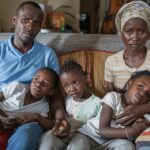Stakeholders in the health sector have enjoined government to address gaps in the implementation of the Reproductive, Maternal, Newborn, Child, Adolescent, Elderly + Nutrition (RMNCAEH+N) COVID-19 Response Continuity recovery Plan 2020-2022.
They made the call yesterday in Abuja during a validation meeting on the COVID-19 RMNCAEH+N plan performance, and health security accountability scorecard.
- Organ harvesting: Ekweremadu’s daughter’s kidney donor is 21 – NIS CG
- 2023 presidency: I’m still searching for running mate – Tinubu
The stakeholders were drawn from civil society organisations, media and young persons.
The plan, worth N12,190,045,688, was developed to mitigate the indirect impact of COVID-19 on, as well as maintain the provision of RMNCAEH+N services.
Coordinator and Founder, Africa Health Budget Network (AHBN), Aminu Magashi Garba, said government had scored 60 percent in the implementation of the plan, but that there is room for improvement.
He said areas where challenges are being experienced included disbursement of money to different sectors such as family planning commodities, inability to locally produce Ready To Use Therapeutic Foods (RUTF) for malnourished children, absence of budget for family planning in 2022, and gaps in adolescent and youth friendly services, among others.
He said, “COVID-19 crippled the economy , and a lot of funding is not available for the government .So, government must be innovative and efficient in spending money. We need to ensure that every facility has electricity, security as well as adequate manpower not only during the day time but also at night and weekends.”
According to him, reproductive, maternal, newborne and Child health are very key to national development.
He said immunization, nutrition, antenatal, postnatal, family planning services and essential drugs for women and children should be prioritised across the country.

 Join Daily Trust WhatsApp Community For Quick Access To News and Happenings Around You.
Join Daily Trust WhatsApp Community For Quick Access To News and Happenings Around You.


